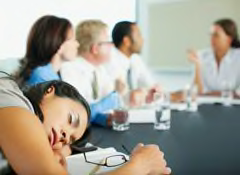Sign In


See how your sleep habits compare with those of 26,451 Consumer Reports readers by taking our 10-question quiz. Check your answers against the survey results at the bottom of this page.
1. How many hours of sleep did people get on a typical night?
A. 6 hours or less
B. About 7 hours
C. About 8 hours
D. 9 or more hours
2. What percentage of people said they have sleep problems (trouble falling or staying asleep, or waking up feeling tired, three or more days a week)?
A. 0 to 25 percent
B. 26 to 50 percent
C. 51 to 75 percent
D. 76 to 100 percent
3. Among people who reported sleep problems, how long do you think they'd been grappling with them, on average?
A. 1 to 2 years
B. 3 to 5 years
C. 6 to 10 years
D. More than 10 years
4. Which treatments were most commonly used for sleep problems?
A. Regular exercise
B. Over-the-counter medications such as Advil PM, NyQuil, or Tylenol PM
C. Prescription medications such as Ambien, Lunesta, Restoril, or Xanax
D. Melatonin or valerian supplements
5. Which treatments were the most helpful?
A. Prescription medications (Ambien, etc.)
B. Over-the-counter medications (NyQuil, Tylenol PM, etc.)
C. Melatonin or valerian supplements
D. Exercise
E. Meditation or yoga
6. What percentage of people taking sleep drugs experienced side effects?
A. 0 to 25 percent
B. 26 to 50 percent
C. 51 to 75 percent
D. 76 to 100 percent
7. Which of these behaviors was more common among good sleepers than bad sleepers?
A. Ate a small snack before bed.
B. Kept the television or radio off at bedtime (or didn't have one in the room).
C. Avoided alcohol or caffeine within several hours of bedtime.
D. Had sex before trying to go to sleep.
8. Which of these alternative or do-it-yourself methods did people find most helpful?
A. A white-noise machine
B. Nasal strips
C. Aromatherapy
9. How many people saw a doctor or other health professional about their sleep problems?
A. 0 to 25 percent
B. 26 to 50 percent
C. 51 to 75 percent
D. 76 to 100 percent
10. Which health professionals were deemed most helpful in treating sleep problems by the people who went to them?
A. Pulmonologists
B. Sleep specialists
C. Psychiatrists
D. All of the above
 Build & Buy Car Buying Service
Build & Buy Car Buying Service
Save thousands off MSRP with upfront dealer pricing information and a transparent car buying experience.
 Get Ratings on the go and compare
Get Ratings on the go and compare
while you shop